Forty years ago West Australian man Jeff Moorcroft was thrust into the short but bloody Falklands War; a conflict that continues to impact many veterans today.
On April 2, 1982, Argentinian forces invaded the tiny British territory of the Falkland Islands, known as the Malvinas in Argentina, in the South Atlantic.
The dramatic action caught the UK off guard and initially there was scepticism on whether military action in the far-off territory was worthwhile.
READ MORE: Russian soldiers 'low on morale and refusing to obey orders'
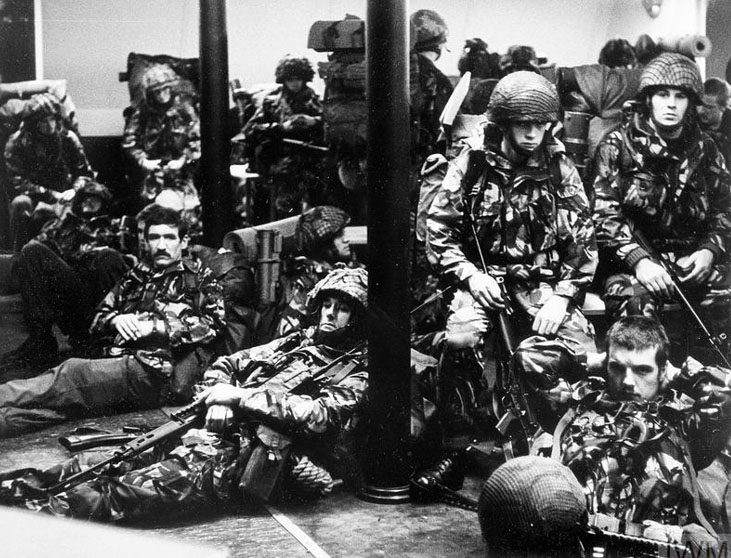
But then-British prime minister Margaret Thatcher decided to retake the Falkland Islands. A Task Force of thousands of British soldiers, sailors and airmen, with Mr Moorcroft among them, was assembled for the 16,000 kilometre voyage from the UK to the Falklands Islands.
At the time Mr Moorcroft was a 20-year-old British soldier, with the 2nd Battalion The Parachute regiment, also known as 2 Para.
He told nine.com.au about his memories of the conflict.
By late April 1982, Mr Moorcroft and his unit were aboard a ferry requisitioned as a troop ship headed to the Falklands.
"It began with many of us thinking there would be a diplomatic solution and we'd be heading home after a few days in the sun sailing off Africa.
"But then when it became apparent we'd have to take them back by force the mood changed. The sun cream was put away and we began pulling out the combat gear."
And the further south the British Task Force travelled, it faced the risk of attack from Argentinian forces.
READ MORE: Aussie house prices to fall more than 5 per cent in 2022-23, analysts say
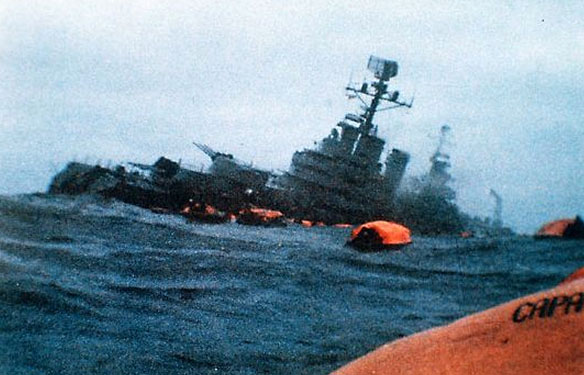
"The mood, emotions and training changed after reaching Ascension Island (the British base in the South Atlantic). There was the constant threat from Argentinian submarines and aircraft and calls to battle stations."
After three weeks sailing, Mr Moorcroft's unit arrived off the Falkland Islands to join other British units. Just 800 kilometres from the Argentinian mainland, British naval ships faced daily air attacks.
After the Royal Navy sunk the Argentinian warship General Belgrano, with the loss of nearly 300 crew, the conflict entered its most intense period.
"The first shots had been fired from the task force and the war was on ... the Argentinians were up for a scrap."
The paratroopers and other British soldiers were tasked with landing on the Falkland Islands and recapturing its capital Stanley.
In late May, 1982, Mr Moorcroft was among a 4000-strong force that landed at San Carlos Bay during the night.
READ MORE: Cold case team shines new light on betrayal of Anne Frank
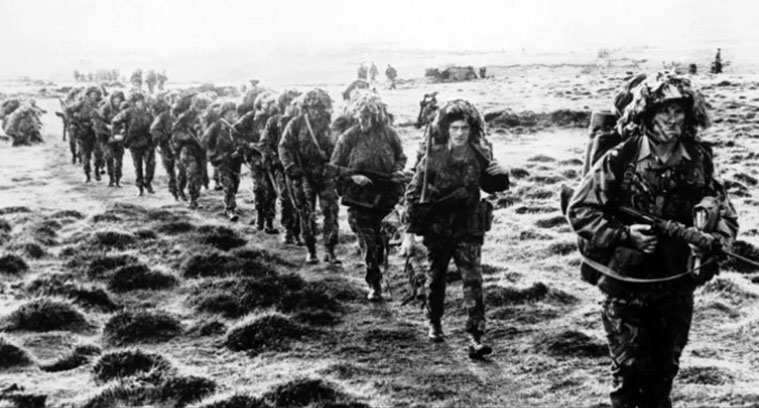
He recalled the initial march from the landing zone over rugged terrain, with each soldier carrying about 40 kilogram of kit, and under the constant danger of enemy attack.
"It was the most physically demanding and arduous tab (march). If you tripped and fell, you had to wait for the person behind you to lift you up."
Over the coming days, 2 Para became the only British land force unit to fight in two battles of the war.
First up was Goose Green, a well defended Argentinian stronghold guarding the route to Stanley.
Mr Moorcroft recalled the chaotic fighting before the final costly British victory.
"There were enemy trenches all over the place ... This was absolute mayhem ... there was close quarter fighting for four to five hours."
More than 1250 prisoners were taken and 50 Argentineans killed during the battle that cost 2 Para 18 dead, including its commanding officer Lieutenant-Colonel 'H' Jones, who was awarded a posthumous Victoria Cross.
READ MORE: Australia commemorates 80th anniversary of Darwin Bombing
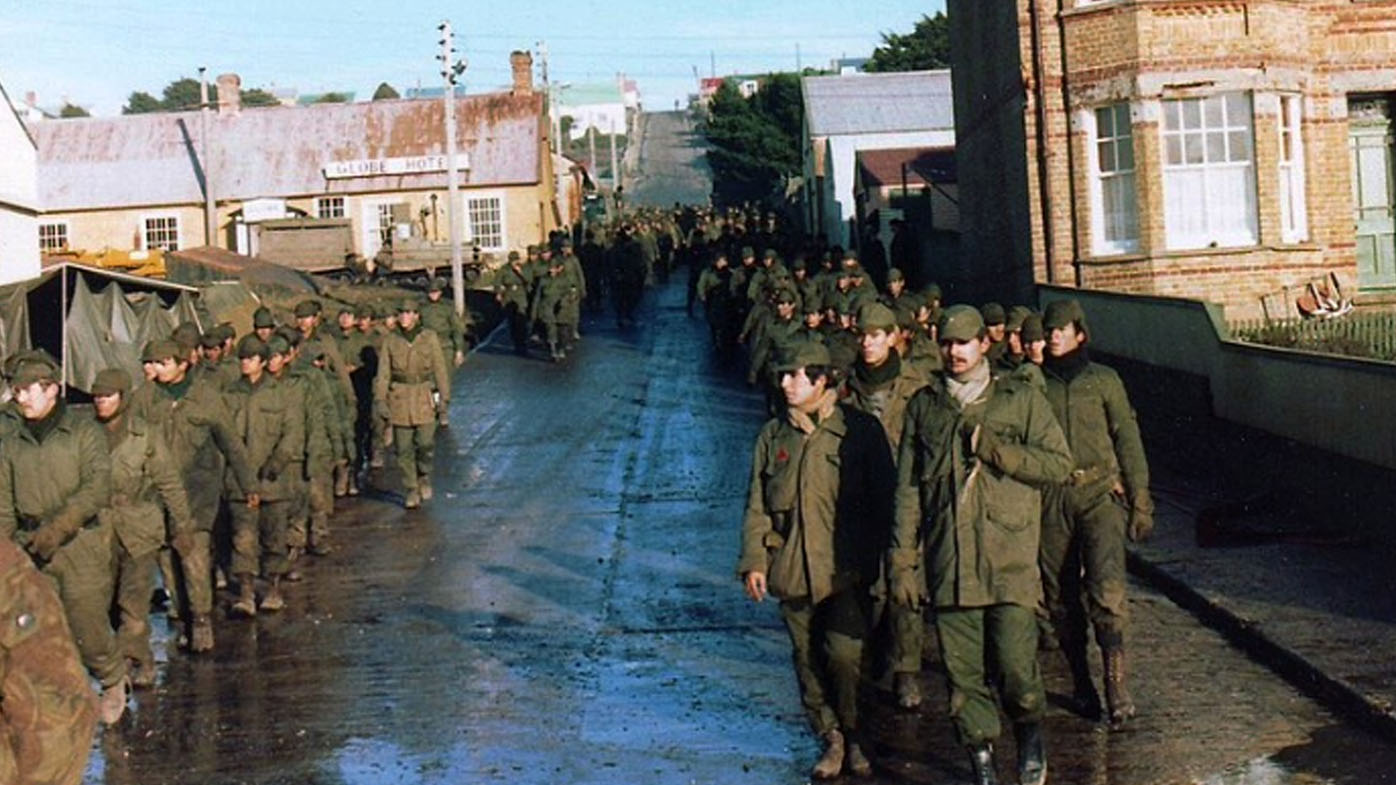
But there was more bloody fighting ahead for the paratroopers involving the final land battle of the war at Wireless Ridge, one of several strategically important hills overlooking Port Stanley.
Adding to the intensity of the fighting was the decision by British commanders to launch a night assault.
Mr Moorhouse described it as a "noisy attack", with gunfire from naval ships and light tanks in support.
"As we advanced from the start line, we felt the crack of returning rounds [bullets] around our heads ... we thankfully took no casualties until we hit the ridge."
Three soldiers of 2 Para were killed and eight wounded during the battle, which opened the way for the recapture of Port Stanley and the eventual Argentinian surrender on June 14, 1982.
READ MORE: Fall of Singapore anniversary: How military disaster changed Australia
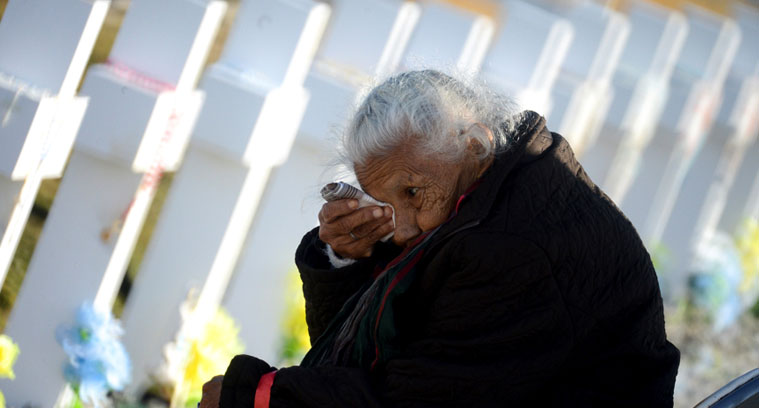
Mr Moorcroft left the British Army in 1987 before moving to Perth in 1991.
Today he is Secretary of the veterans group Airborne Forces Association of Western Australia, that among its roles provides welfare and other benevolent work for members.
Mr Moorcroft said a disturbing legacy of the Falklands War has been the high number of veteran suicides since 1982.
While UK casualties included 255 troops killed in action, the past decades have seen an estimated 264 veterans die from self harm.
Argentina recorded 649 deaths in the war, but the number of post-conflict veteran suicides is believed to be 350 to 500.
Lifeline can be called on 13 11 14 or at www.lifeline.org.au.
